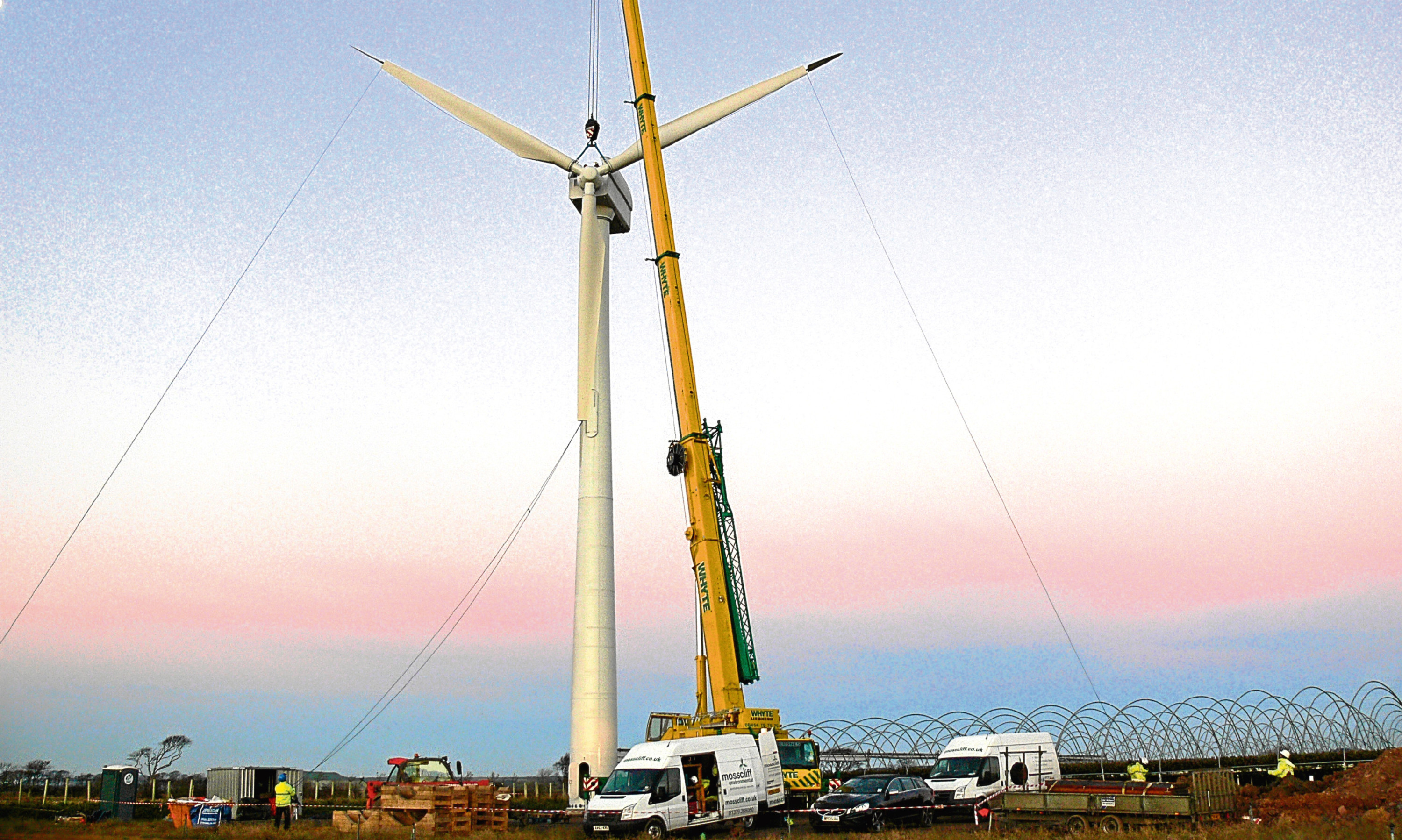Nervous renewables firms are expecting hundreds of jobs to be lost in Scotland over the coming year as state support for green technology development falls.
A new survey by industry body Scottish Renewables found almost a third of companies were negative about their prospects for the next 12 months.
And more than 40% of respondents were also downbeat about the state of the sector more generally.
The results were collated from data from 46 firms surveyed earlier this month.
That group currently employs just over 2,000 staff and indicated they expected one in six jobs to be lost – around 330 – in the next 12 months.
The renewables sector as a whole in Scotland employs 21,000 staff.
At the same anticipated attrition rate as indicated by the respondents, around 3,500 jobs would be lost.
“These results show that changes to and closures of support schemes are having an impact on our members and on the numbers of employees within their businesses,” Jenny Hogan, director of policy at Scottish Renewables, said.
“The UK Government is rightly excited about the economic opportunities presented by the impacts of the global shift to low-carbon energy, but it’s really important we don’t forget about the jobs in our renewable energy sector today.
“Onshore wind and solar are the two cheapest forms of electricity, but ministers are refusing to allow them to access long term contracts for power, which will result in a marked slowdown in investment and a decrease in employment, as our survey has suggested.”
Among the companies that participated in the survey was turbine manufacturer and project developer Enercon UK, which employs 155 staff in Scotland.
It has warned a third of its workforce could be lost in the next 12 months.
Country manager Richard Hatton said the primary reason for the anticipated reduction was “Government policy on onshore wind, leading to a much smaller market, reduced orders and a reduction in requirement for staff across the business.”
Sarah Merrick, head of public affairs, UK and Ireland, for wind turbine manufacturer Vestas, added: “The UK onshore wind sector is currently in limbo. It is the cheapest source of new-build power, but yet cannot acces the market.”
Ms Hogan said there was widespread concern about the direction the sector was taking.
“Obviously many businesses in our membership are worried about the future and the lack of a business case for investment in parts of our sector,” she said.
“However, it is also clear that firms are working hard to diversify in many different ways, for example opening up overseas markets and moving into new areas such as energy storage and low-carbon heat.
“I hope that government will see the sense in continuing to support investment in the technologies that have driven our sector’s growth over the last decade, while working with industry to grasp the opportunities for further growth over the next ten years.”










